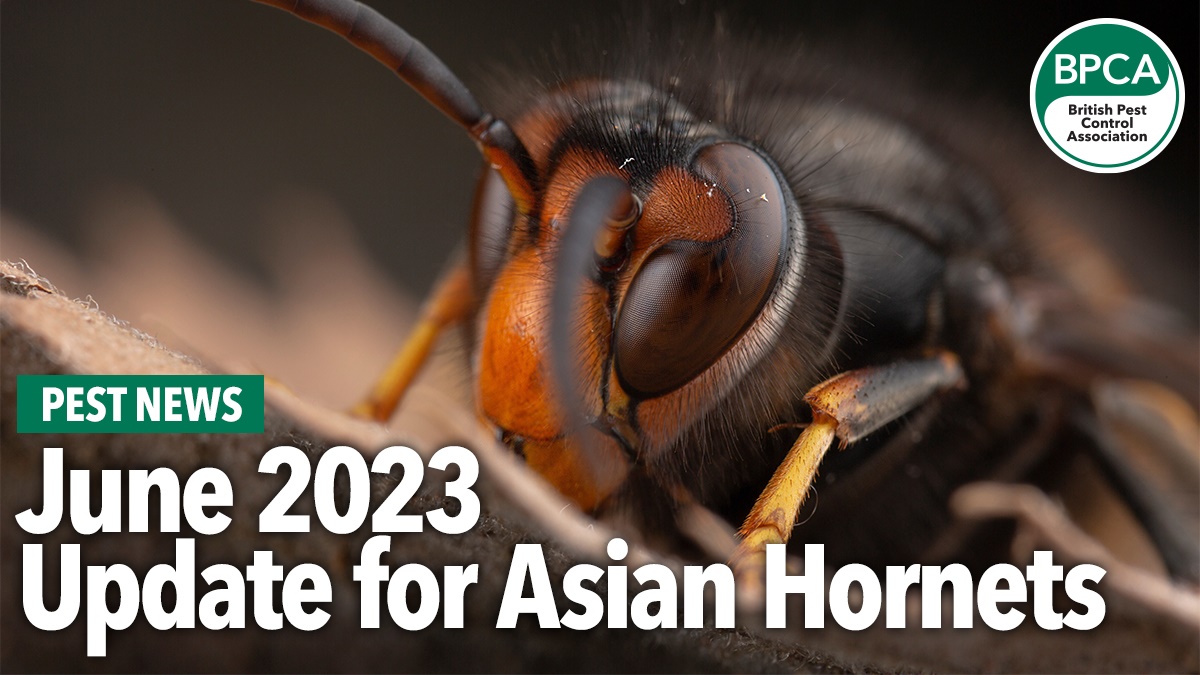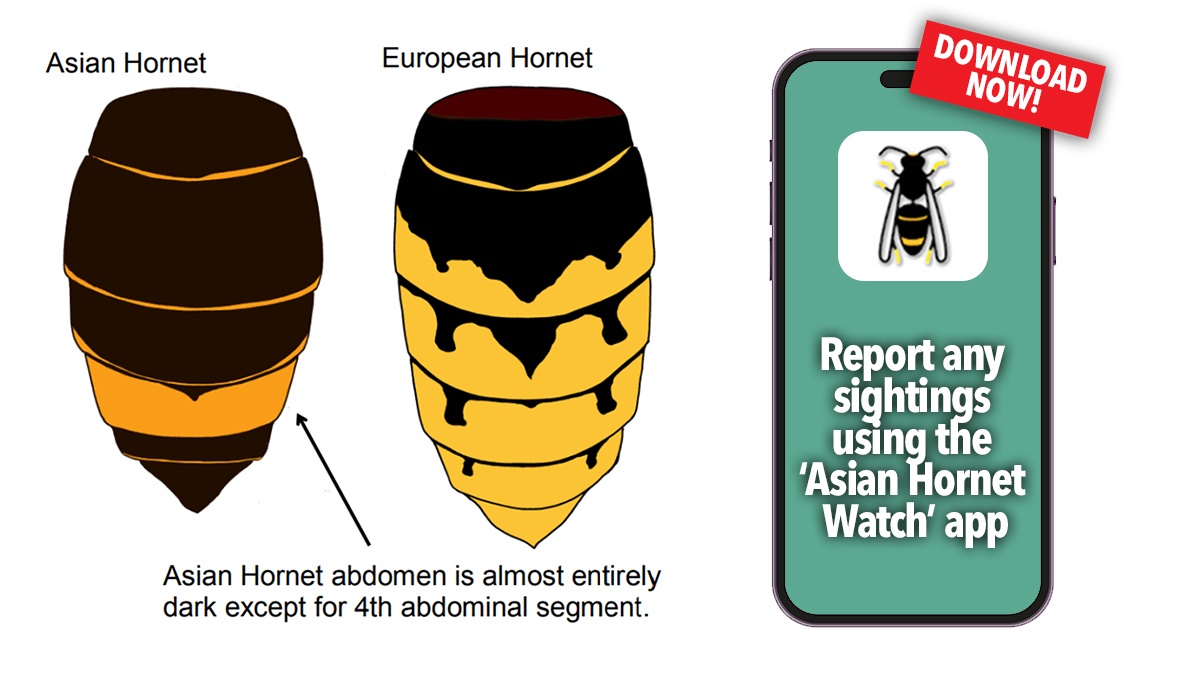INVASIVE SPECIES
In this guest article, Elliott and Martin Rose-King, from Bounty Pest Control, provide an update on Asian hornet sightings in the UK.

As many of you may already know, a suspected Asian hornet sighting occurred in late April around Folkestone.
In response to this, we at Bounty have been running a monitoring programme within a 2km radius of the sighting location.
This consisted of 20 traps, which have been checked daily for Asian hornets and to release any non-target catches.
In addition to this, awareness leaflets were distributed in the local area and local shopkeepers allowed us to place awareness posters in their windows. Local beekeepers and verifiers were also alerted and asked to remain vigilant.
The monitoring traps have now been removed, as we have reached the time of year where non-target insects were being trapped and other methods of monitoring will become more effective (and less damaging, as they will not continue to trap non-target insects).
While we continue to wait for further official updates (such as those from the NBU or on BeeBase), we should all remain vigilant and continue to use appropriate monitoring methods from the season.
Monitoring for the Asian hornet in summer
Experience from Guernsey has shown that, as we move into a season where workers will be foraging, spending 10-15 minutes (around midday) watching insects coming and going from your beehives is usually a more effective way of monitoring than a trap! If Asian hornets are in your area, you will probably see them visiting!
This is a more effective way of monitoring at this time of year than using a monitoring trap and has the added benefit of not trapping important non-target insects (that would have to be released each day).
It’s also important to note that several pieces of research from France, Spain, Italy, and the Channel Islands has shown that using continuous trapping as a control method, in addition to just monitoring, is (unfortunately) not effective and cannot control an Asian hornet nest.
Continuous kill trapping will also have a negative impact on other important insects and also often has a more harmful effect on your own bees – so it’s important to avoid doing this.
If you are still using a monitoring trap at this time, you may start to find increasing numbers of pollinators in your trap, it is important you modify it (as shown in previous articles) and check it every day to release any pollinators that are still trapped!
If you start finding this is happening very frequently, especially if you are catching bumblebees (as they cannot use the escape holes) you should consider removing the trap and monitoring using alternative methods.
Updates from the Channel Islands
As of the end of May, Jersey had already caught 252 Asian hornet queens!
While this is a very large number, it demonstrates the success and importance of the spring trapping programme they introduced in recent years.
Each Asian hornet nest can have up to 10,000 workers and produce around 300 queens by the end of the year, so this work has significant long-term benefits.
Guernsey initially had a quieter start to the year, with only 7 queens caught approaching the end of May. However, in the final days of the month their confirmed sightings increased to 20!
This demonstrates that, even with the success of the hard work done so far in Guernsey – it’s important to remain vigilant. It is likely that winds carried some of these hornets to Guernsey.
Discontinuing our Role as AHAT Coordinators
In other news, unfortunately due to some new contractual work that we have starting in June, both of us no longer have the capacity to undertake the role of AHAT coordinators. This will be our final update as Asian hornet coordinators.
Both of us would like to thank Steve Clarkson (General Secretary of the Kent Beekeepers Association) and Wendy Laffan (Chair of the Ashford Beekeepers branch) for their support, and everyone for the opportunity to work together on this.
We will both still be contactable in the future, should anybody need advice or assistance!
Identification information

And finally, if you believe you have seen an Asian hornet, or want to remember how to identify one, that information is below along with details on how to report any sightings (it is important that all suspected sightings are reported properly).
A very common misconception is that Asian hornets are larger than our native European hornets – this is actually not correct and Asian hornets are about 5 mm smaller than European hornets on average.
You can identify an Asian hornet from its dark abdomen, or other distinguishing features seen in the diagrams above (Image by GB Non-Native Species Secretariat).
If you find an Asian hornet
If you think you have positively identified a hornet (or think you have one trapped - do not release it), you should report any sightings using the ‘Asian Hornet Watch’ app (available on android or iOS phones).
Searching “Asian Hornet Watch” on the App Store, or Google Play Store, should find the app.
If you do not have access to the app, you can also submit a report online.
Or email alertnonnative@ceh.ac.uk
Source: Bounty PR